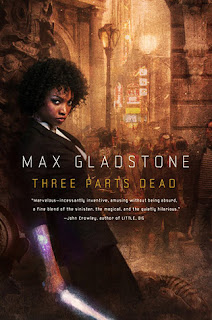Top Ten Tuesday is a weekly meme for bloggers who like books and lists. It's awesome and is graciously hosted by The Broke and the Bookish.This week's Top Ten Tuesday has a back to School motif. It's wide open but the topic chosen must have something to do with school. In The Broke and the Bookish's exact words:
Back To School Freebie -- anything "back to school" related like 10 favorite books I read in school, books I think should be required reading, Required Reading For All Fantasy Fans, required reading for every college freshman, Books to Pair With Classics or Books To Complement A History Lesson, books that would be on my classroom shelf if I were a teacherI wanted to come up with a topic that would be unique to my background and interests so settled on making a list of books that Biology majors, particularly of the ecology persuasion but others too, would like. ' Cause I was a bio major and now make my way through the world doing biology like things. This is not some kind of definitive list that All Biology Majors Must Read. While I may read more science oriented books in my leisure time than the average person, I don't actually read very much in my chosen field when I'm not at work. I've never even read some of the classics like On The Origin of Species by Darwin so this is SO not a definitive list. Just some books I've read that I think Bio majors or folks interested in Biology/Nature might enjoy. Okay, enough caveats! Let's do this thing.
***************
1) A Sand County Almanac by Aldo Leopold
This will always be my first choice forever and ever amen. An insightful eloquent and prescient series of essays about humans and our relationship to the natural world - what it rightfully is and how it is broken. Stunningly beautiful, clear and simple.
2) Walden by Henry David Thoreau
A classic and worth reading. It's short and is also a contemplation of human kind's relationship with the natural world. And as with Dakota down below it is about really connecting with a place.
3) The Selfish Gene by Richard Dawkins
Dawkins is a controversial figure these days but this classic book which posits the supremacy of the gene in driving evolution is fascinating and really worth a read.
4) Gun Germs and Steel by Jared Diamond
Diamond is a HUGE name in ecology and evolution and has developed many interesting theories that are part logic, part philosophy, part science. He's a genius and this quick read is his very cogent argument of how the world's climate and geography among other things (not race), shaped the development of human civilization.
5) Dr Tatiana's Sex Advice to All Creation by Olivia Judson
In undergrad I did a paper on the evolution of monogamy. This book, when I read it many years later, did a great job of exploding all the old ideas I espoused in that paper and illustratied that once again nature is way more complex than we can usually fathom. AND it's easy to read and amusing by being told in the format of letters to a sex advice column:0).
6) The World Without Us by Alan Weisman
A data based thought experiment that asks the questions "If Human Beings instantaneously disappeared from this earth what would happen?" It's interesting to think and read about.
7) Stiff: The Curious Lives of Human Cadavers by Mary Roach
Mary Roach. Bar none the most interesting and entertaining science writer. Stiff is my favorite of her books. Her book about the gastrointestinal system, Gulp, is a close second.
8) Dakota: A Spiritual Geography by Kathleen Norris
This is not a science book at all but it should really appeal to ecologists nonetheless. It is a series of essays that meditate on the importance of place and how we sometimes connect to geography and what that means.
9) Don't be Such a Scientist: Talking Substance in an Age of Style by Randy Olson
So, I haven't actually read this one which makes it pretty iffy to include (I do own it) but this is SUCH a big issue. Scientists are, as a rule, REALLY bad at communicating in a way that engages non-scientists. This is a topic most should read up on early in their career
10) The Immortal Life of Henrietta Lacks by Rebecca Skloot
An important story that brings up all sorts of ethical questions. It is also an example of a personal story behind science.
***************
Making this list has helped me to think about all those definitive texts I haven't yet read. There's Darwin of course, Rachel Carson, Annie Dillard, E.O. Wilson, and Stephen Jay Gould. Then there are a couple of recently released books that I have my eye on - Lab Girl by Hope Jahren and H is for Hawk by Helen McDonald. What else Bio majors?
P.S. Reading through my description of each book, I realized I made each of them sound insanely dry and boring and THERE NOT! I promise! Okay, except maybe Walden. BUt the rest are great reads, really!
















































